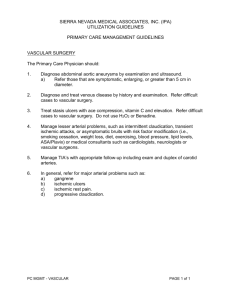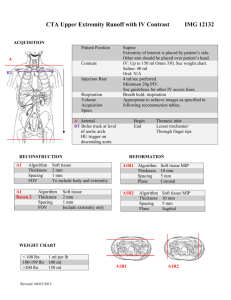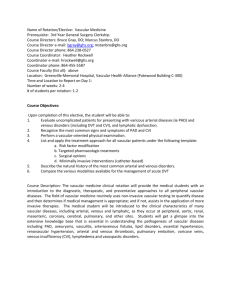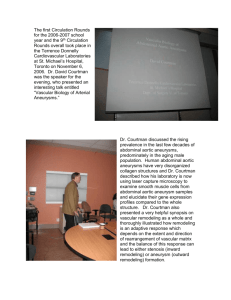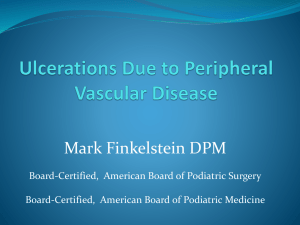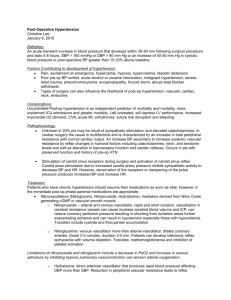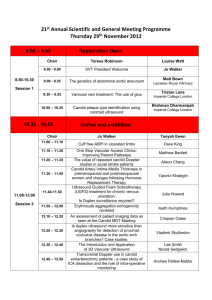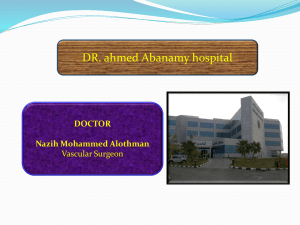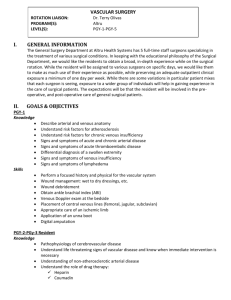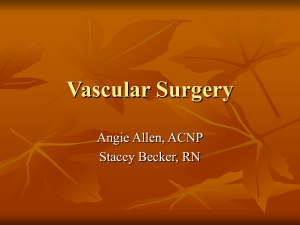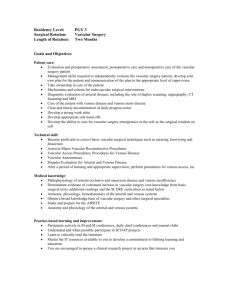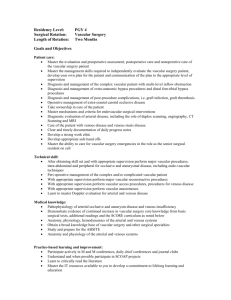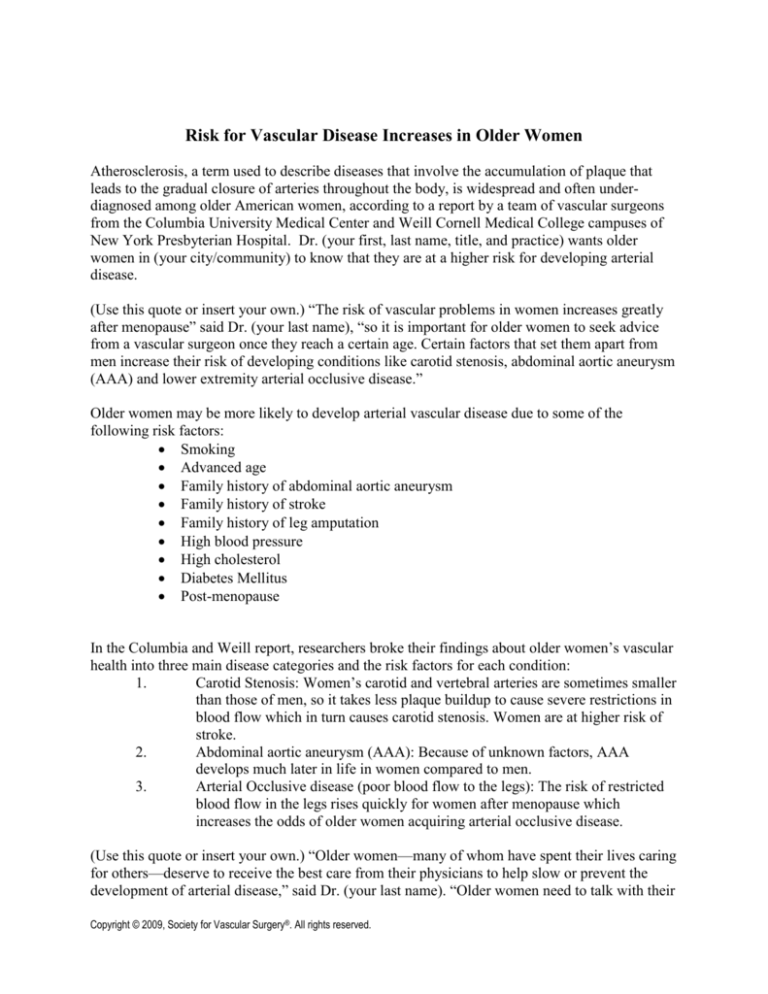
Risk for Vascular Disease Increases in Older Women
Atherosclerosis, a term used to describe diseases that involve the accumulation of plaque that
leads to the gradual closure of arteries throughout the body, is widespread and often underdiagnosed among older American women, according to a report by a team of vascular surgeons
from the Columbia University Medical Center and Weill Cornell Medical College campuses of
New York Presbyterian Hospital. Dr. (your first, last name, title, and practice) wants older
women in (your city/community) to know that they are at a higher risk for developing arterial
disease.
(Use this quote or insert your own.) “The risk of vascular problems in women increases greatly
after menopause” said Dr. (your last name), “so it is important for older women to seek advice
from a vascular surgeon once they reach a certain age. Certain factors that set them apart from
men increase their risk of developing conditions like carotid stenosis, abdominal aortic aneurysm
(AAA) and lower extremity arterial occlusive disease.”
Older women may be more likely to develop arterial vascular disease due to some of the
following risk factors:
Smoking
Advanced age
Family history of abdominal aortic aneurysm
Family history of stroke
Family history of leg amputation
High blood pressure
High cholesterol
Diabetes Mellitus
Post-menopause
In the Columbia and Weill report, researchers broke their findings about older women’s vascular
health into three main disease categories and the risk factors for each condition:
1.
Carotid Stenosis: Women’s carotid and vertebral arteries are sometimes smaller
than those of men, so it takes less plaque buildup to cause severe restrictions in
blood flow which in turn causes carotid stenosis. Women are at higher risk of
stroke.
2.
Abdominal aortic aneurysm (AAA): Because of unknown factors, AAA
develops much later in life in women compared to men.
3.
Arterial Occlusive disease (poor blood flow to the legs): The risk of restricted
blood flow in the legs rises quickly for women after menopause which
increases the odds of older women acquiring arterial occlusive disease.
(Use this quote or insert your own.) “Older women—many of whom have spent their lives caring
for others—deserve to receive the best care from their physicians to help slow or prevent the
development of arterial disease,” said Dr. (your last name). “Older women need to talk with their
Copyright © 2009, Society for Vascular Surgery®. All rights reserved.
primary care physician about being tested for carotid stenosis, abdominal aortic aneurism and
arterial occlusive disease.”
In addition, vascular surgeons encourage more women to become involved in clinical trials for
these conditions to help further research into risk factors, disease prevention, and intervention as
well as treatment outcomes. Visit clinicaltrials.gov for more information about participating in
clinical trials.
(Either use your website and contact information or the SVS information.) Vascular surgeons are
the experts in all treatments including medical management and noninvasive procedures. To
learn more about arterial disease and other vascular diseases, visit (your website), or
www.VascularWeb.org, or call (your phone number).
Copyright © 2009, Society for Vascular Surgery®. All rights reserved.

